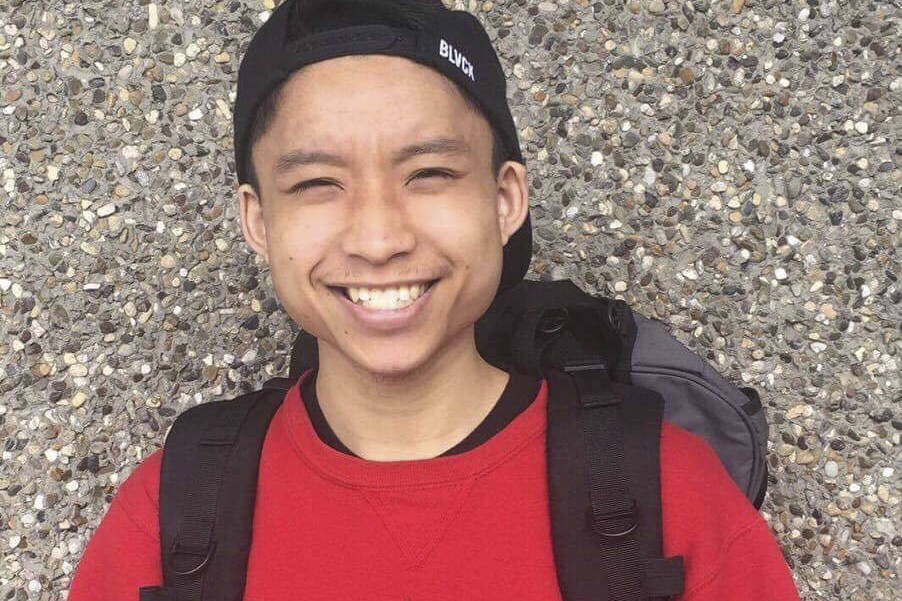In June, a 20-year-old man named Tommy Le was shot and killed by a King County Sheriff’s deputy in Burien while holding a pen mistaken for a knife. Now his family is asking King County Executive Dow Constantine and District Court Judge Susan Mahoney to give them more of a voice during the inquest into Le’s death.
It’s unclear, though, whether the family and its lawyers will succeed in changing an inquest process that has been long-criticized for presenting one-sided narratives to juries tasked with determining whether an officer-involved death was justified.
In a letter to Constantine last week, and during a hearing before Mahoney on Friday, family attorney Jeffery Campiche asked that he be allowed to call his own witnesses and present his own case to the jury during the inquest, which will be held next April.
“What we are asking is for you to allow a narrative that is different than the one from the agency that shot the young man and the lawyers representing the agency that shot the young man,” Campiche said during the pre-inquest hearing. Afterward, Campiche underscored the Le family’s refusal to be silent witnesses to the inquest: “We are not potted plants.”
Under current policy, lawyers representing the family of the deceased have very limited powers in the inquest process: They cannot call their own witnesses, enter their own evidence, or address the jury. Under such circumstances, it is exceedingly rare in King County for juries to find fault with law enforcement’s use of deadly force. Many families and lawyers have found the process wanting.
“A lot of people think an inquest is to determine whether a shooting was justified or whether a killing was justified,” Corey Guilmette told KUOW earlier this year. Guilmette represented the family of Che Taylor, who was shot and killed by two Seattle police officers who were never charged, and whose death was ruled justified by an inquest jury. “It really does not do that and cannot do that.”
Le’s family is trying to preempt those limitations by petitioning the executive and judiciary to expand the scope of inquests.
In the letter to Constantine, Campiche and his co-counsel Linda Diem Tran argue that the circumstances and aftermath of Le’s death demand a change to the policy. Deputies encountered Le in a residential Burien neighborhood after responding to calls of a man acting bizarrely and menacing people. At least one caller reported that the man, later identified as Le, was wielding a knife. The morning after Le’s death, the Sheriff’s Office put out a press release insinuating that Le was approaching deputies with a knife and refusing commands when he was shot. However, Le was in fact holding a pen when killed—a fact not revealed by the Sheriff’s Office until nearly a week after the shooting, and then only under questioning by Seattle Weekly. Even more questions were raised when it was revealed that Le was shot twice in the back.
“The Sheriff’s Office’s public statement omitted the fact that Tommy Le died of wounds from being shot twice in the back, not the front, as you would expect and attacker lunging toward the officers with a knife, to be shot. … Without the family’s attorneys being allowed to address the Inquest jury, that jury well might not be informed of this damning fact, a fact that maligns the shooting officer’s account of the killing,” Campiche and Tran write.
Constantine’s office has not responded to the lawyers or the family; as for Mahoney, she made clear from the bench on Friday that she would be reluctant to change the inquest proceedings without the go-ahead from Constantine, who alone holds the power of calling inquests and determining their rules.
“I don’t want you to think I’m pre-judging,” Mahoney told Campiche in the pre-inquest hearing. “I just want to set realistic parameters.”
As the courtroom adjourned, Le’s aunt, Xuyen Le, expressed worry that the process would not allow their side to be told.
“I feel like it’s going to be unfair. We don’t have evidence, we don’t have a voice. There’s no way for the community to hear what happened,” she said.
Derrick Isackson, who is representing the deputy, Cesar Molina, said afterward that inquests are distinct from liability trials, which will occur if the Le family’s $20 million lawsuit against the county, filed in September, moves forward.
“I think it gets to a point where if [the inquest] becomes a liability hearing, why are we doing this?” he said.
But if the inquest does not seek to determine liability, the Le family will ask very much the same question.
news@seattleweekly.com










